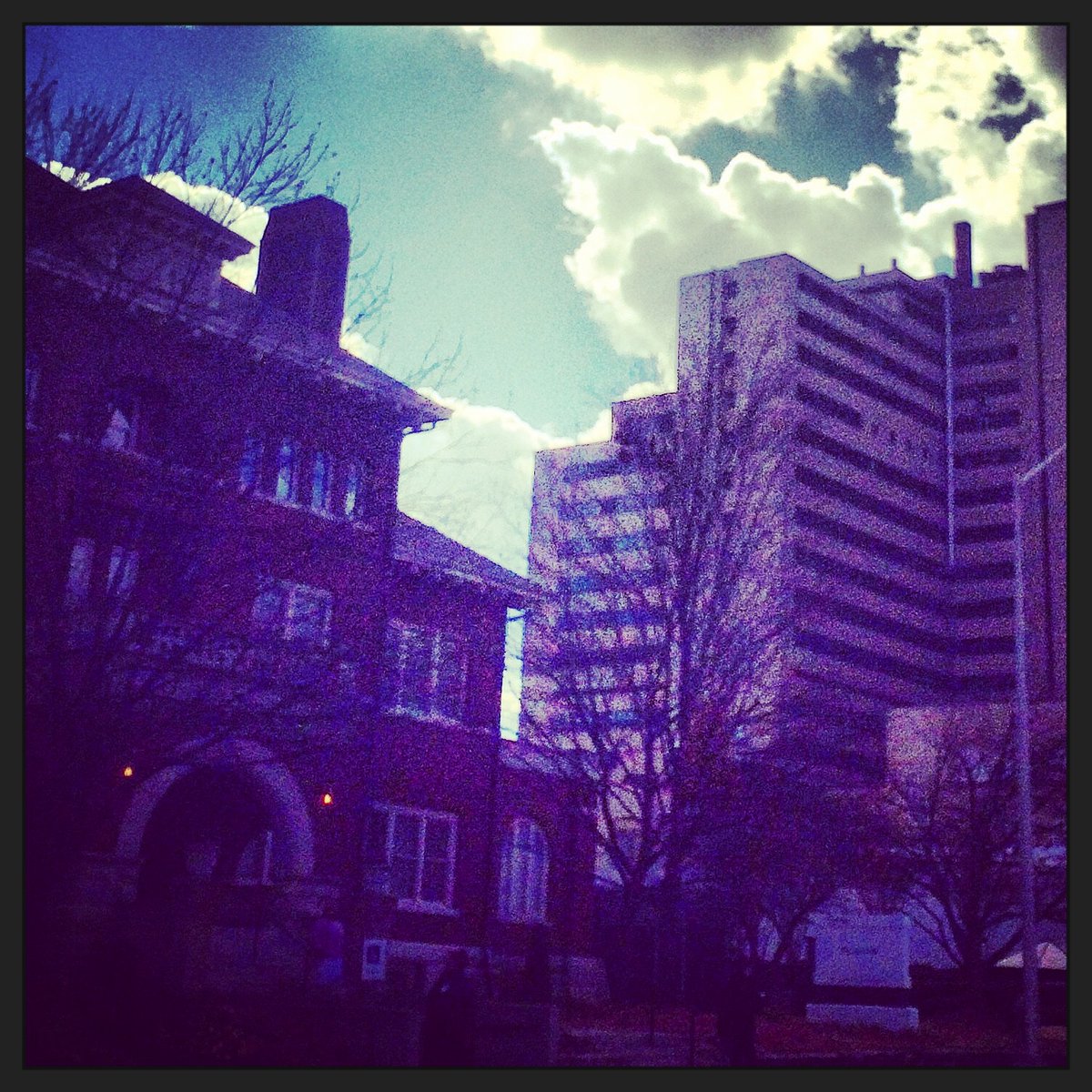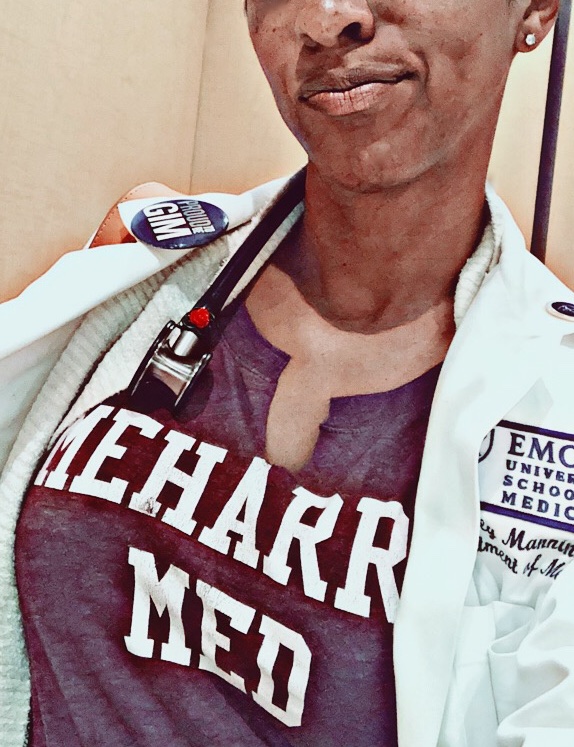1/
As a black woman in residency leadership, I& #39;m afforded the chance to interview applicants each year. I get to meet several URiM medical students along the way. Recently, I interviewed 4 black students and noticed something very unique:
All were descendants of U.S. slavery.
As a black woman in residency leadership, I& #39;m afforded the chance to interview applicants each year. I get to meet several URiM medical students along the way. Recently, I interviewed 4 black students and noticed something very unique:
All were descendants of U.S. slavery.
2/
It& #39;s kind of like nails on a chalkboard to say those words: "descendants of slavery." But it does describe a specific subset of students who identify as black or who fall under the "URiM" category.
Complicated, I know.
It& #39;s kind of like nails on a chalkboard to say those words: "descendants of slavery." But it does describe a specific subset of students who identify as black or who fall under the "URiM" category.
Complicated, I know.
3/
I& #39;m so thrilled by the growing missions of so many institutions like ours to not just talk about but BE about diversity and inclusion. Since evidence tells us of the countless advantages of diversity--in patient care and beyond--this is a good thing.
Totally.
I& #39;m so thrilled by the growing missions of so many institutions like ours to not just talk about but BE about diversity and inclusion. Since evidence tells us of the countless advantages of diversity--in patient care and beyond--this is a good thing.
Totally.
4/
So yeah. I& #39;m pumped to meet every applicant. And delighted to offer my own insights on what it& #39;s like to navigate our system as a black person.
But.
I do recognize that being black and a descendant of slavery + post-slavery atrocities is something unique.
So yeah. I& #39;m pumped to meet every applicant. And delighted to offer my own insights on what it& #39;s like to navigate our system as a black person.
But.
I do recognize that being black and a descendant of slavery + post-slavery atrocities is something unique.
5/
The urgency to increase diversity in our physician workforce is so great that I feel excited at the sight of every afrocentric face I see--regardless of when their families arrived in the U.S.
But.
I& #39;d be lying if I wasn& #39;t struck by those 4 rare applications.
The urgency to increase diversity in our physician workforce is so great that I feel excited at the sight of every afrocentric face I see--regardless of when their families arrived in the U.S.
But.
I& #39;d be lying if I wasn& #39;t struck by those 4 rare applications.
6/
Rare, yes. Rare in that they had names like the ones of the kids who grew up in my inner city neighborhood. Creative ones made up by their mamas and sniffed at by biased employers and bourgeois relatives who& #39;ve "arrived."
Rare, yes. Rare in that they aren& #39;t who I see.
Rare, yes. Rare in that they had names like the ones of the kids who grew up in my inner city neighborhood. Creative ones made up by their mamas and sniffed at by biased employers and bourgeois relatives who& #39;ve "arrived."
Rare, yes. Rare in that they aren& #39;t who I see.
7/
I read this article by Poole et. al. in @AcadMedJournal with great interest. Though it& #39;s uncomfortable to think about, I do think there are some truths behind the peculiar generational experiences that shape students who are descendants of slavery. #pdf-link">https://journals.lww.com/academicmedicine/Abstract/publishahead/Mission_Drift__Are_Medical_School_Admissions.97435.aspx #pdf-link">https://journals.lww.com/academicm...
I read this article by Poole et. al. in @AcadMedJournal with great interest. Though it& #39;s uncomfortable to think about, I do think there are some truths behind the peculiar generational experiences that shape students who are descendants of slavery. #pdf-link">https://journals.lww.com/academicmedicine/Abstract/publishahead/Mission_Drift__Are_Medical_School_Admissions.97435.aspx #pdf-link">https://journals.lww.com/academicm...
8/
I don& #39;t know the solution or even how to think of all of this. But I do know many, many physicians and trainees who identify as black and who aren& #39;t U.S. slavery descendants but who ARE huge champions for #DEI and underserved people.
And hallelujah for that.
I don& #39;t know the solution or even how to think of all of this. But I do know many, many physicians and trainees who identify as black and who aren& #39;t U.S. slavery descendants but who ARE huge champions for #DEI and underserved people.
And hallelujah for that.
9/
But I am still haunted by the loneliness of those 4 names amidst the rest who look like them in the crowd--a growing minority within a minority group.
Hmmm.
Like, how do we patch the holes in the pipeline to hold on to the LaTashas, Darnells, and MarShawns, too?
But I am still haunted by the loneliness of those 4 names amidst the rest who look like them in the crowd--a growing minority within a minority group.
Hmmm.
Like, how do we patch the holes in the pipeline to hold on to the LaTashas, Darnells, and MarShawns, too?
10/
And does it even matter if, at the end of the day, you have more black doctors? My guess is that it does.
This conversation always feels like it throws shade to the African and Afro-Caribbean students/colleagues who identify as black. It doesn& #39;t have to, though.
Nope.
And does it even matter if, at the end of the day, you have more black doctors? My guess is that it does.
This conversation always feels like it throws shade to the African and Afro-Caribbean students/colleagues who identify as black. It doesn& #39;t have to, though.
Nope.
11/
I guess I think that if we are all really serious about going hard at building a more diverse work force in medicine--and one that feels inclusive, we have to unpack everything. And think about everything, too.
So what to do?
I guess I think that if we are all really serious about going hard at building a more diverse work force in medicine--and one that feels inclusive, we have to unpack everything. And think about everything, too.
So what to do?
12/
Well. Certainly a tweet won& #39;t solve it all. But some thoughts (many of which I& #39;ve gotten from you all) include:
Holistic application reviews
Looking beyond standardized test scores
Honest reflections about who you interview and select
Knowledge of differences within groups
Well. Certainly a tweet won& #39;t solve it all. But some thoughts (many of which I& #39;ve gotten from you all) include:
Holistic application reviews
Looking beyond standardized test scores
Honest reflections about who you interview and select
Knowledge of differences within groups
13/
Also:
Having these conversations with your admissions and recruitment teams is good, too. Visiting historically black institutions (like the ones I attended) and becoming intentional about creating a space for black students and trainees who may be getting forgotten.
Also:
Having these conversations with your admissions and recruitment teams is good, too. Visiting historically black institutions (like the ones I attended) and becoming intentional about creating a space for black students and trainees who may be getting forgotten.
14/
For the record:
All 4 of those applicants were awesome.
And if those top-tiered programs who never got a chance to see me as an applicant hadn& #39;t rejected my imperfect (but promising) application? They would& #39;ve seen that I was awesome, too.
Thanks for letting me unpack. https://abs.twimg.com/emoji/v2/... draggable="false" alt="ud83dudc4aud83cudffe" title="Fisted hand sign (medium dark skin tone)" aria-label="Emoji: Fisted hand sign (medium dark skin tone)">
https://abs.twimg.com/emoji/v2/... draggable="false" alt="ud83dudc4aud83cudffe" title="Fisted hand sign (medium dark skin tone)" aria-label="Emoji: Fisted hand sign (medium dark skin tone)">
For the record:
All 4 of those applicants were awesome.
And if those top-tiered programs who never got a chance to see me as an applicant hadn& #39;t rejected my imperfect (but promising) application? They would& #39;ve seen that I was awesome, too.
Thanks for letting me unpack.

 Read on Twitter
Read on Twitter

 " title="14/For the record:All 4 of those applicants were awesome. And if those top-tiered programs who never got a chance to see me as an applicant hadn& #39;t rejected my imperfect (but promising) application? They would& #39;ve seen that I was awesome, too. Thanks for letting me unpack.https://abs.twimg.com/emoji/v2/... draggable="false" alt="ud83dudc4aud83cudffe" title="Fisted hand sign (medium dark skin tone)" aria-label="Emoji: Fisted hand sign (medium dark skin tone)">" class="img-responsive" style="max-width:100%;"/>
" title="14/For the record:All 4 of those applicants were awesome. And if those top-tiered programs who never got a chance to see me as an applicant hadn& #39;t rejected my imperfect (but promising) application? They would& #39;ve seen that I was awesome, too. Thanks for letting me unpack.https://abs.twimg.com/emoji/v2/... draggable="false" alt="ud83dudc4aud83cudffe" title="Fisted hand sign (medium dark skin tone)" aria-label="Emoji: Fisted hand sign (medium dark skin tone)">" class="img-responsive" style="max-width:100%;"/>


